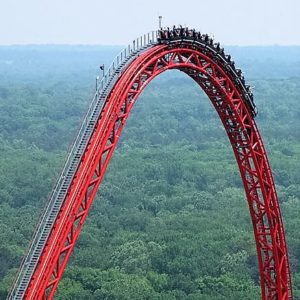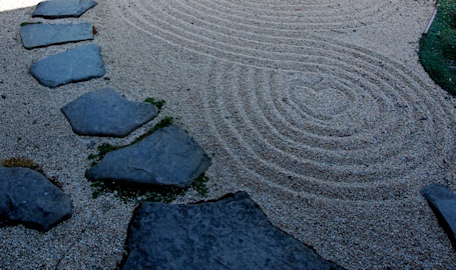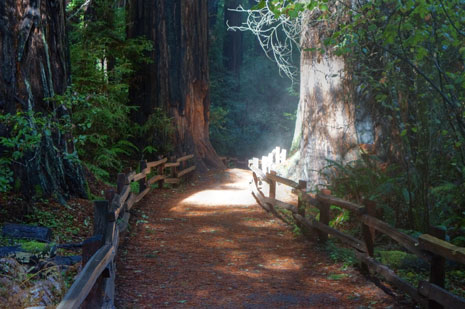by Alan Briskin | Collective Wisdom

(This post was also published on The Huffington Post)
Introduction / Part One / Part Two / Part Three / Part Four
If a man going down into a river, swollen and swiftly flowing, is carried away by the current, how can he help others across? — Buddha
Racism, nativism, xenophobia — and Donald Trump, oh my! Novelist Richard North Patterson summarizes the current situation we face: “Trump personifies a fear and hatred of ‘the other’ embodied by some of our history’s more frightening and despicable figures: Father Coughlin, Joseph McCarthy, George Wallace. This has led to some of our most shameful chapters — lynchings, anti-immigrant violence, the internment of Japanese-Americans. Because such tragedies are so searing, we view them as unique. But they do not arise from nowhere. Nor did Donald Trump.”
Indeed. Fear of the other, authoritarian responses to social unrest, and the rise of demagogues do not appear from nowhere. They are historical forces, angry ghosts lingering from our collective past. And at the heart of these forces is often an individual’s tribal identification with a group, an identification so powerful it can often take precedence over an individual’s own safety and lead to support of sociopathic leaders promising the tribe’s survival and ultimate victory. In the United States, we are witnessing an upsurge of this tribal identification with the candidacy of Donald Trump. We are also witnessing associated ideologies revolving around tribal beliefs of white superiority, rooted in the notion that white Europeans are responsible for civilization and therefore worthy of respect above all others. And this belief did not come out of nowhere.
Read More
by Alan Briskin | Collective Wisdom

(This post was also published on The Huffington Post)
Introduction / Part One / Part Two / Part Three / Part Four
Mathematician and visionary Arthur M. Young introduced his book The Geometry of Meaning with the enigmatic words “All meaning is an angle.”
Does meaning emerge from the tension of varying angles of perception? And if this is true, what angle of inquiry might be worthwhile to pursue?
In this new series of posts (in four parts over the next 12 days), I explore an angle of inquiry that is working its way into collective consciousness — the confrontation with shadow and its meaning for a new narrative based on inclusion, wholeness, spirit, and sustainable systems.
The shadow is personified by the emergence of Donald Trump, whose narcissism, sociopathic disposition, and lack of discipline have unnerved even traditional Republican Party loyalists. Many in the progressive community are breathing a sigh of relief that such a disorganized, vacillating, and bigoted figure could not possibly win the election. Yet, it is sobering to remember that, even as pundits ponder that he actually wants to lose the election, his polling hovers at 40% of the electorate, and he remains in striking distance of his Democratic opponent. The angle of justification that “he’s not perfect but we need him to shake things up” remains a viable political perspective for many.
In what might seem a separate universe, the growing movement for “a world that works for all” is also active, a grassroots phenomenon that is revealing itself in innumerable projects that seek economic and social justice. In a few days, I will be co-hosting a conference in Germany called “Leading as Sacred Practice.” It is but one example of efforts aimed at linking self-awareness and social awareness as two interconnected phenomena.
I hope to provoke in this new series of posts a further understanding of shadow as having a collective element. Although the shadow, as described by Jung, has been understood mostly in personal psychological terms, its greater meaning lies in the collective social field. And to understand what is stirred up in the collective, we must go beyond the individual to the tribal and spiritual elements of human behavior. To do so risks some personal discomfort, as our current understanding is challenged, but the reward is an expanded angle of comprehension and a deeper regard for the intermingling of the social and the sacred. To be satisfied with demonizing Trump risks aborting a critical opportunity for learning about the collective situation we face.
Finally, I want to offer a reframe for the meaning of descent. It can refer to a movement downward, even a sudden violent attack. It can also refer to origins, such as the background of a person’s family or nationality. All these meanings show up in my writing, but it is the angle of descent that concerns me. If the descent is too extreme, meaning unconscious, it can indeed result in a violent end. However, if the descent allows us to penetrate into the depths of our situation, and we return with greater consciousness, then we will be able to see our situation with new eyes and contribute to our world with new understanding. This is the journey we are all on, managing the boundary between conscious and unconscious awareness. Let it be a joyful one, opening the soul’s eyes, embracing multiple perspectives, and joining the company of those we most value and respect.
by Alan Briskin | Health

My new Huffington Post piece explores the emerging field of integrative medicine. I have been involved in the medical field as far back as 1972 when I did an internship at the Berkeley Free Clinic. It’s where I first began to understand how optimal health is a joining together of the individual body-mind-spirit with the pro-social behaviors necessary for thriving in community. And care providers can play a critical role at the intersection of these two domains.
There are no clear boundaries regarding what is meant by integrative medicine although terms like integrated care, complementary medicine, and alternative medicine have been used interchangeably for decades, sometimes meaning very different things.
This post is meant to start a conversation and bring into awareness an emergent philosophy of care that is something of a new species.
Best, Alan
by Alan Briskin | Collective Wisdom, Spiritual Intelligence
Leading as Sacred Practice: A Retreat & Conference
September 5-9, 2016
http://facilitation.kommunikationslotsen.de/training/leading-as-sacred-practice/
Please join me and my colleagues, David Sibbet, Gisela Wendling, and Holger Scholz for an extraordinary five days of learning, reflection, and collective discovery. During our time together we will investigate how ritual, ceremony, and the natural world are central to remembering and recreating the sacred in contemporary times.
Is the sacred purely a personal matter or a critical aspect of our group and collective evolution? Has the sacred become marginalized or ignored in the organizational world? Can the sacred be integrated into our work as facilitators, consultants, conveners, and leaders? What is the role of the sacred in our own lives?
Together, we will explore these questions and seek ways to integrate the sacred in our own lives and in our work with clients.
The conference will be held on the exquisite land of the Beuerhof in the middle of Vulkan Eifel, in Germany. This volcanic soil holds memory of ancient European roots but has also been deeply influenced by Lakota Native American practices. We expect the land itself to be a powerful participant.
We are constantly co-creating the collective fields by which we operate in. This conference represents a living laboratory and celebration of these ideas coming into global awareness.
I hope to see you there. Brochure and Registration:
http://facilitation.kommunikationslotsen.de/training/leading-as-sacred-practice/
Best,
Alan Briskin, co-author The Power of Collective Wisdom
by Alan Briskin | Collective Wisdom

September 5-9, 2016
Registration and Brochure
Please join me and my colleagues, David Sibbet, Gisela Wendling, and Holger Scholz for an extraordinary five days of learning, reflection, and collective discovery. During our time together we will investigate how ritual, ceremony, and the natural world are central to remembering and recreating the sacred in contemporary times.
Is the sacred purely a personal matter or a critical aspect of our group and collective evolution? Has the sacred become marginalized or ignored in the organizational world? Can the sacred be integrated into our work as facilitators, consultants, conveners, and leaders? What is the role of the sacred in our own lives?
Together, we will explore these questions and seek ways to integrate the sacred in our own lives and in our work with clients.
The conference will be held on the exquisite land of the Beuerhof in the middle of Vulkan Eifel, in Germany. This volcanic soil holds memory of ancient European roots but has also been deeply influenced by Lakota Native American practices. We expect the land itself to be a powerful participant.
We are constantly co-creating the collective fields by which we operate in. This conference represents a living laboratory and celebration of these ideas coming into global awareness.
I hope to see you there. Brochure and Registration:
Best,
Alan Briskin, co-author The Power of Collective Wisdom




